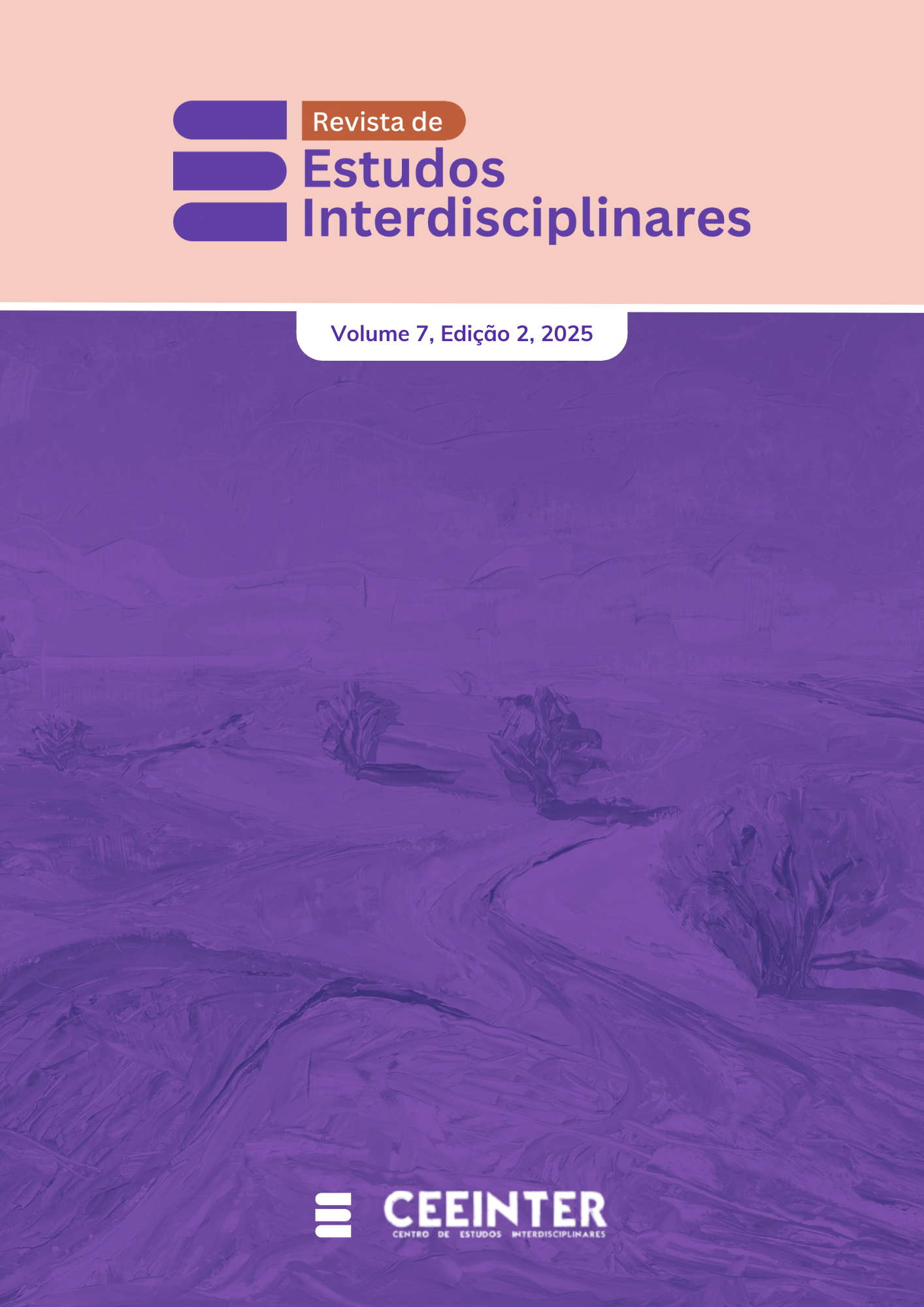CITIZENSHIP AND DEMOCRACY
AN APPROACH IN SECONDARY EDUCATION IN PROFESSIONAL AND TECHNOLOGICAL EDUCATION
Visualizações: 1DOI:
https://doi.org/10.56579/rei.v7i2.1585Keywords:
High School, Citizenship, DemocracyAbstract
This article aims to discuss the role of education in promoting citizenship and democracy in the context of Vocational and Technological Education, as well as presenting an educational product developed with the aim of enabling students to become citizens who are aware of their rights and duties. The article explores how democracy, citizenship and democratic management can be stimulated in school environments, promoting a more critical citizen education. The research was carried out with integrated high school students at the Federal Institute of São Paulo, Campus Itapetininga, and involved the application of an educational product structured around a talk and an electoral simulation, aimed at raising awareness of issues related to democratic and participatory management. The methodology included questionnaires to assess the impact of this educational product on students' understanding of these issues. The results indicate that the approach applied contributed to the development of citizens who are more aware of their rights and duties and ready to act responsibly in society.
Downloads
References
ANJOS, M. B.; RÔÇAS, G; PEREIRA, M. V. Análise de livre interpretação como uma possibilidade de caminho metodológico. Ensino, Saúde e Ambiente, Niterói, v. 12, n. 3, p.27-39, 2019. Disponível em: https://periodicos.uff.br/ensinosaudeambiente/article/view/29108. Acesso em: 01 out. 2024.
ARAUJO, Adilson Cesar de. A gestão democrática e os canais de participação dos estudantes. Revista Retratos da Escola, Brasília, v. 3, n. 4, p. 253-266, jan./jun. 2009. Disponível em: http://retratosdaescola.emnuvens.com.br/rde/article/view/116/305. Acessado em 10 set. 2024.
BRASIL. Constituição (1988). Constituição da República Federativa do Brasil de 1988. Brasília, DF: Presidência da República. Disponível em: http://www.planalto.gov.br/ccivil_03/constituicao/constituicaocompilado.htm. Acesso em: 10 set. 2020.
BRASIL. Lei 9.394 de 20 de dezembro de 1996. Lei de Diretrizes e Bases da Educação Nacional. Disponível em: https://www.planalto.gov.br/ccivil_03/leis/L9394compilado.htm. Acesso em: 09 set. 2024.
BRASIL. MEC. Educação Profissional Técnica de Nível Médio Integrada ao Ensino Médio - Documento Base. Brasília: Ministério da Educação, 2007. Disponível em: http://portal.mec.gov.br/setec/arquivos/pdf/documento_base.pdf. Acesso em: 10 set. 2024.
CARVALHO, M. P. et al. Ensino médio integrado: desafios para a consolidação de uma política educacional. Revista de Políticas Públicas & Educação, v. 3, n. 1, p. 21-35, 2019.
CIAVATTA, M. A; RAMOS, M. N. Ensino médio e educação profissional no Brasil: dualidade e fragmentação. Revista retratos da escola, Brasília, v. 5, n. 8, p. 27-41, jan./jun. 2011. Disponível em: http://retratosdaescola.emnuvens.com.br/rde/article/viewFile/45/42. Acesso em: 10 set. 2024
CIAVATTA, Maria. A formação integrada: a escola e o trabalho como lugares de memória e de identidade. In. FRIGOTTO, G.; CIAVATTA, M; RAMOS, M.(orgs). Ensino Médio Integrado: concepção e contradições. São Paulo: Cortez, 2005.
GIDDENS, Anthony. As Consequências da Modernidade. Editora da UNESP, 1990.
KELSEN, Hans. A Democracia. São Paulo: Martins Fontes, 2000, pp. 140 – 141;
NUNES, Douglas Ribeiro; MOSSIN, Eduardo André. Uma Formação Cidadã: Bases conceituais E jurídicas sobre Cidadania, Democracia e Gestão Democrática aplicadas ao Ensino Médio Integrado. Produto Educacional – Instituto Federal de São Paulo, Sertãozinho, 2024. Disponível em: http://educapes.capes.gov.br/handle/capes/870569. Acesso em: 16 out. 2024.
RAMOS, M. C. B. Ensino médio integrado: a visão interdisciplinar dos professores. Educação e Pesquisa, v. 41, n. 1, p. 167-182, 2015.
Downloads
Published
How to Cite
Issue
Section
License
Copyright (c) 2025 Interdisciplinary Studies Journal

This work is licensed under a Creative Commons Attribution 4.0 International License.
The Journal of Interdisciplinary Studies adopts the Creative Commons Attribution 4.0 International License (CC BY 4.0), which allows for sharing and adapting the work, including for commercial purposes, provided proper attribution is given and the original publication in this journal is acknowledged.













